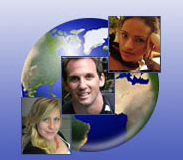Ask Ronit
 I Like Your Ponytail, A Story About Commitment
I Like Your Ponytail, A Story About Commitment
“I like your ponytail.” I said in a playful manner. “Ponytail?” he repeated in a thick French accent. There and then began the most extraordinary odyssey of my life.…
Avoid 90% of the Pesticides in Food, by Avoiding 12 Foods
Why should you care about pesticides in your food?For starters there may be as many as twenty pesticides on a single piece of fruit you eat.…
Dear Mrs. Black,It was January 1967 when this 11 year-old, frightened, little Israeli girl walked into your classroom for the first time. I had only arrived in the country two weeks before.…
With sex all around us, oozing out of our televisions, theaters, magazines, fashion, on the streets, one would think we are the most sexually informed, open and comfortable nation on the planet.”…
I’m sure by now you all have noticed the ongoing meltdown in the mortgage industry. The cause of this whole mess is a little bit complicated, rooted in both the structure of the mortgage industry, and human nature. I’ll try to explain both factors here in layman’s terms.…
Breaking old habits; Creating new Ones
We are mostly habitual beings. Webster defines habit as an acquired mode of behavior that has become nearly or completely involuntary.…
Navigation
Loving Yourself
How many times have you heard the statement, “You can’t love anyone until you love yourself?”
While this is a true statement, the reality is we are not taught what it means to love ourselves; or more importantly, how it feels to love ourselves. If you stop and think about this for a moment, you probably will be able to come up with some ideas of what love is, but you would be hard-pressed to actually conjure up feelings of love for yourself. We know what it feels like to love another; yet we don’t know what it feels like to love ourselves.
Exercise
Here is an exercise you can do which will illustrate my point: Think of someone toward whom you feel love, e.g. your spouse, your child, your parent, your friend, etc. Now what comes up for you? You may feel warm, tingling feelings in your chest; and/or joy, tenderness, and an all encompassing sense of closeness toward that person. You may have some thoughts arise which will bring a smile to your face, or some concern about that person’s well being. What ever comes up, there is a tangible feeling of affection toward that person. Now, see what happens when you move your attention toward loving yourself. The probability is that nothing emotional will arise. You may have some thoughts consistent with ways in which you behave that may be indicative of love, but you are not likely to experience the kind of visceral emotions that arise when you reflect on your love for another.
What does this mean?
How does this affect you? When we experience love toward another, we generally experience feelings of caring about that person, and are moved by those feelings to act in ways which will promote that individual’s well being. Experiencing the love viscerally is a major motivating force for taking care, helping, being kind and patient etc. The thought of loving someone does not move us; it is the feelings associated with love that move us.
If we don’t concretely experience love toward ourselves, we are less likely to act in loving ways toward ourselves.
So how do we create and nurture those feelings within us?
The exercise I am about to describe will be uncomfortable for most of you since it requires looking in the mirror. Generally, when we look in the mirror, our minds begin to notice all the things we don't like about our faces, and our critical minds start chattering away: "I hate my big nose."; "My face is fat."; My hair is too thin."; Each of us has particular features we dislike. Can you remember the last time you looked in the mirror and thought, "My, you are so beautiful." Probably not. The reason is that we tend to look at ourselves on a superficial level. We rarely look into our eyes and see our inner selves.
Mirror Exercise
This is best done in the morning to start off the day positively. It may take a few times (or many times) of practice, but if you stick with it, you will begin to "see and feel" results.
Get in front of a mirror which only reflects your face (stay away from full body mirrors since you will have the added distraction of criticizing your body).
Now, look into your eyes and don't let your eyes wonder to other parts of your face. If they do, bring them back to your eyes. Allow yourself to rest your gaze deep into your eyes. Again, this may feel silly or uncomfortable initially, but resist any temptation to move your gaze or worse yet, to abandon the exercise. Keep looking even if it makes you uncomfortable.
As you settle into your eyes, observing the discomfort and resistance, see if you can bring up any warm, caring feelings toward yourself. If you are like most people, you probably will not be able to experience these feeling initially. Don't get frustrated, instead, conjure up someone in your life toward whom you do feel tenderness and care. It could be a person or a pet. Now get in touch with the loving feeling which arise toward that individual. Let yourself experience the fullness of the feelings. This next step is a little tricky; still gazing in your eyes, transfer those feelings to yourself. More Specifically, stay with the warm feelings and then invoke yourself into your consciousness. It is not natural for us to feel loving toward ourselves and it will take some time, but stay with it. Keep bringing up the loving feelings toward the other and relate them to yourself.
Do this exercise for five minutes in the mornings and see what happens. If you stick to it, you will begin to experience a tenderness toward yourself. Keep it up until the feelings naturally rise up in you toward you.
Eventually, you will not need the mirror to feel the love for yourself. It will arise every time you consciously think of yourself in your daily life.
The benefits of experiencing love for yourself
As I indicated above, when we experience a deep caring for someone, it evokes a desire to contribute to their happiness and well being as deeply as it evokes a desire to protect them from harm and pain. Notice how you respond when someone you love comes to you with a mistake she made. Your immediate response is one of wishing to be of help. You may help the person find a solution, or if the mistake caused her harm, you may sooth her with kindness and acceptance. Now, notice how you generally respond toward yourself when you make a mistake – your critical, judgmental mind begins to blame and make you wrong- there is no kindness or acceptance toward yourself. Clearly, that reaction will not facilitate a positive space from which you can move forward in a healthy way. Your critical reaction will only serve to exacerbate your negative feelings, which will in turn shut you off from finding a solution, and not teach you how to avoid making the same mistake in the future. Furthermore, this negativity festers within you, contributing to your sense of not feeling lovable. Meeting yourself with compassion and kindness enhances your sense of self worth, and allows you to see that you are only human - mistakes do not define you.
Not only do mistakes not define you, they actually are essential for your development and growth. I will go even further and declare that mistakes are cause for celebration.
to be continued...

 My Hero
My Hero We Are Sexual Beings
We Are Sexual Beings The Banking Implosion
The Banking Implosion















Post new comment